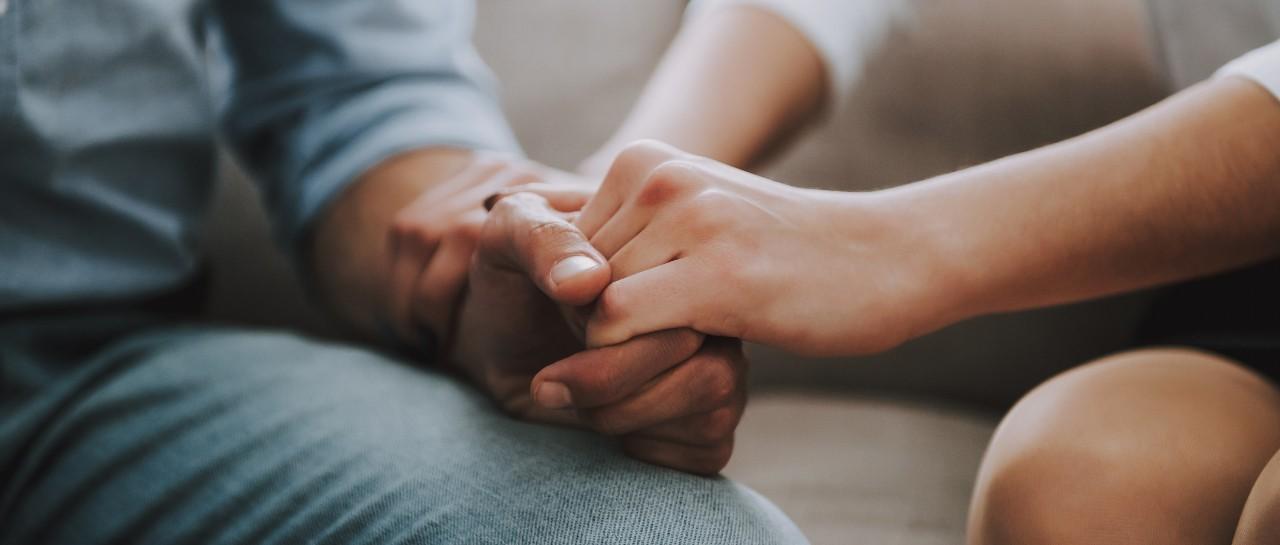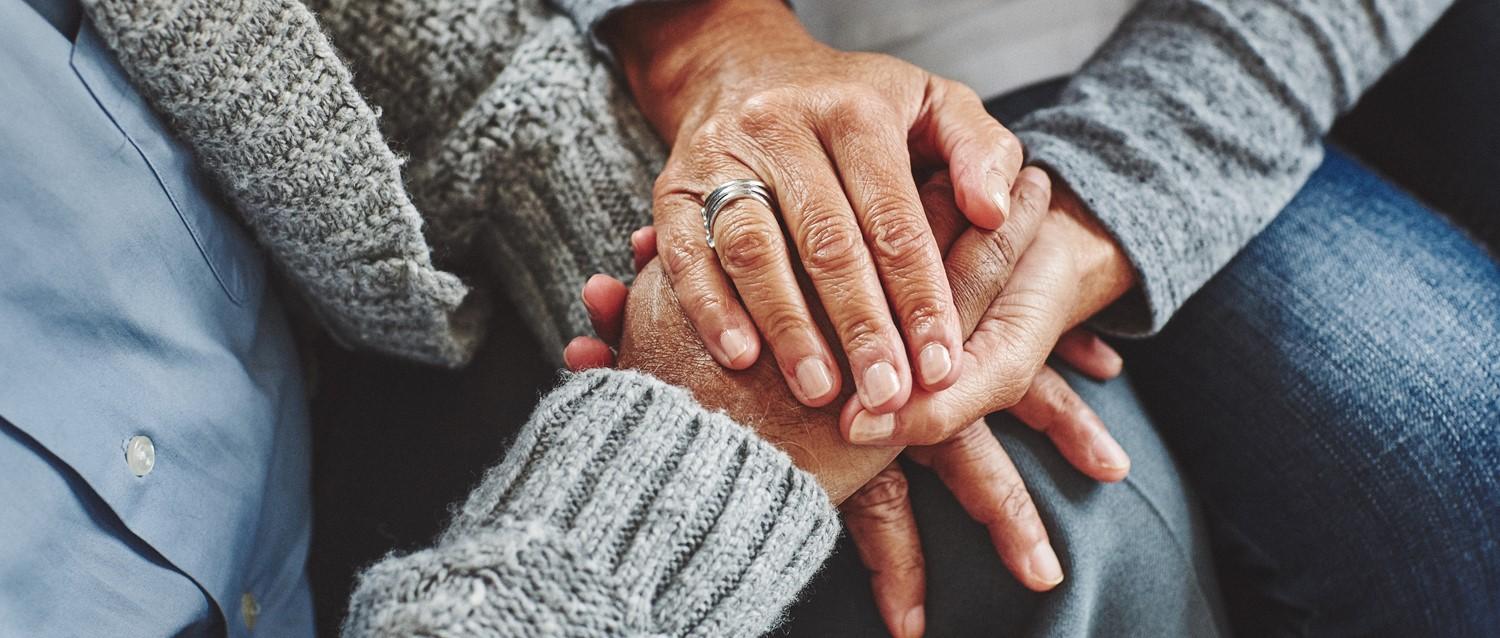
LGBTQI+: what are the barriers and challenges in end of life care?
Peer reviewed by Dr Sarah Jarvis MBE, FRCGPLast updated by Amberley DavisLast updated 23 Feb 2022
Meets Patient’s editorial guidelines
- DownloadDownload
- Share
- Language
- Discussion
Everyone deserves access to good quality end of life care. Unfortunately, a significant number of LGBTQI+ people still have poorer experiences than non-LGBTQI+ patients. Common barriers and challenges include intentional and accidental discrimination, inappropriate care, and lack of knowledge among healthcare providers. What practical steps can be taken to create a welcoming environment, provide more comfort, and eliminate prejudice at the end of LGBTQI+ people's lives?
In this article:
Continue reading below
LGBTQI+ healthcare inequality
Across all areas of healthcare, the LGBTQI+ community have poorer experiences of care than non-LGBTQI+ patients. This can be deeply distressing and traumatic for anyone, but those in need of palliative and end of life care are particularly vulnerable.
People requiring end of life care tend to need more intense care provision, are often old and therefore may be more isolated, and may also be so debilitated by their illness that they are unable to react to - or report - incidences of discrimination.
Despite this vulnerability, there is a large research gap in the UK regarding LGBTQI+ people's experiences of end of life care. Most studies tend to focus on the experience of gay men and lesbian women in cancer care, leaving significant gaps around the issues faced by people of other gender identities as well as those with other diseases.
Alongside cancer care research, reports that look at the attitudes toward LGBTQI+ people in healthcare more generally can help to form a picture of the issues faced by those in end of life care.
The Unhealthy Attitudes report
In 2015, Stonewall conducted research with YouGov into health and social care professionals' attitudes towards LGBTQI+ people. After surveying 3,001 staff, they found:
Bullying and discrimination
24% of patient-facing staff had heard colleagues making negative remarks about lesbian, gay and bisexual people, using terms like 'poof' or 'dyke'.
20% had heard disparaging remarks about trans people.
5% of patient-facing staff had witnessed other colleagues discriminate against or provide a patient with poorer treatment because they were lesbian, gay or bisexual in the last five years.
Failure to support LGBTQI+ patients
57% of health and social care practitioners said they didn't consider someone's sexual orientation to be relevant to a person's health needs.
24% were not confident in their ability to respond to the specific care needs of trans patients and service users.
10% had witnessed a colleague advocating the belief that someone could be cured of being lesbian, gay or bisexual.
LGBTQI+ experiences in end of life care
Sadly, it appears that these worrying trends of unhealthy attitudes towards the LGBTQI+ community extend to end of life care. The identified barriers to palliative cancer care - as well as end of life care - include discrimination, criminalisation, persecution, fear, distress, social isolation, disenfranchised grief, bereavement, tacit acknowledgement, homophobia, and mistrust of healthcare providers.
These challenges can be especially traumatic in end of life care: "Whether it's accidental or intentional, LGBTQI+ people who experience discrimination during end of life care are much more vulnerable," says jane fae, director at Trans Actual.
"For example, hearing someone using the wrong pronouns can be hurtful, but if you are at the end of your life and one of the last things you hear is being addressed as the wrong gender this can be even worse."
Emma Underwood, training officer at Opening Doors, describes how older LGBTQI+ people continue to face enormous barriers: "Assumptions made by providers often leave our communities unable to access the services they need. That could include partners being left out of critical decision-making, or trans people having the gender on their death certificate marked incorrectly. Older LGBTQI+ people often find themselves being let down by those who should be caring for them.
The services that we provide at Opening Doors aim to ensure that our communities have a place to connect with one another, where their voices can be heard and celebrated."
Common experiences of discrimination, inappropriate care, and lack of knowledge include the following:
Intentional and accidental discrimination
Negative or insulting comments.
Being cold and dismissive of certain needs and requests.
Making hetero-normative assumptions about gender and sexual orientation.
Failing to acknowledge partner relationships and partners being excluded from decisions.
Not having the same spiritual needs as any other non-LGBTQI+ patients addressed.
A lack of understanding among staff regarding legal rights at the end of life - including nearly 25% of healthcare staff who do not understand who is entitled to make legal decisions on behalf of the patient (who is the next of kin).
How this makes people feel and act
Feeling hurt or dismissed.
Experiencing substantial social isolation - when compared to heterosexual patients.
Not reporting hate crimes to police for fear of further discrimination.
Partners feel isolated or unsupported during bereavement because of their gender or sexuality.
Fearing prejudice from healthcare providers leads to people accessing care late or not at all. This may also lead to increased pressure on informal carers, such as family and friends.
In particular, young LGBTQI+ people are often put off from accessing palliative and end of life care services because they tend to be less confident about disclosing their gender or sexuality. Research also shows that older people have a preference for personal end of life care by friends and family, but this is not always financially possible.
Continue reading below
How do you create a welcoming environment in LGBTQI+ end of life care?
Despite these issues, end of life care providers have been slow to make changes to improve LGBTQI+ support and create a more welcoming environment.
The Unhealthy Attitudes survey found that, across the entire healthcare sector, many health and social care staff are:
Afraid to speak up - 16% don't feel able to challenge discriminatory language and behaviour from their colleagues or patients.
Unequipped to challenge prejudice - 72% of patient-facing staff have not received any training on the health needs of LGBTQI+ people, the rights of same-sex partners and parents, or the use of language and practices that are inclusive of the LGBTQI+ community. What's more, only 25% of those trained report that the legal rights of trans staff and trans service users were included.
A third of respondents say that the NHS and social care services should be doing more to meet the needs of lesbian, gay, and bisexual service users. Yet, there are several practical steps that these services can take to improve LGBTQI+ support and provide the end of life care that everyone deserves.
Steps that healthcare professionals could take
Avoid making hetero-normative assumptions about patients regarding their sexuality or gender identity.
Create a place of safety and inclusivity for LGBTQI+ patients and their carers.
Visibly support LGBTQI+ inclusivity - this could include displaying rainbow flags in waiting for care buildings and on websites, and including references to LGBTQI+ inclusivity/experience in patient information resources.
Adopt inclusive language – this includes asking people what pronouns they prefer.
Include same gender and LGBTQI+ partners in consultations.
Provide training on LGBTQI+ inclusivity to all healthcare staff - such as raising awareness of discrimination issues and education on LGBTQI+ end of life legal rights and next of kin processes.
Signpost LGBTQI+ people to organisations for legitimate information and inclusive support – this can help stop the spread of misinformation online.
Patient picks for End of life care

Senior health
How to cope with a terminal illness at Christmas
Christmas can be very distressing when you have a terminal illness. When festive cheer is all around but you know you are dying and this might be your last Christmas, this time of year can be unsettling. Likewise, it can be hard for loved ones to know how to act when they don't know how long they have left with a family member.
by Emily Jane Bashforth

Senior health
What not to say to someone who is dying
If a friend or family member is given a terminal diagnosis, it's natural to want to support them. But many of us are scared of saying the wrong thing. We look at potential pitfalls.
by Gillian Harvey
Continue reading below
Article history
The information on this page is peer reviewed by qualified clinicians.
23 Feb 2022 | Latest version

Ask, share, connect.
Browse discussions, ask questions, and share experiences across hundreds of health topics.

Feeling unwell?
Assess your symptoms online for free
Sign up to the Patient newsletter
Your weekly dose of clear, trustworthy health advice - written to help you feel informed, confident and in control.
By subscribing you accept our Privacy Policy. You can unsubscribe at any time. We never sell your data.